Disclosure: Meeple Mountain received a free copy of this product in exchange for an honest, unbiased review. This review is not intended to be an endorsement.
Given that Hanamikoji was first published back in 2013, has received several reprints, a new name (it was originally known as 21 Flowers), a thematic reskin (in the form of Jixia Academy), and in 2021 is getting another reprint, 7 new mini-expansions and a sequel (Geisha’s Road), you might assume that the game isn’t too shabby.
You may have also received a similar impression from consulting wise tabletop critics such as Meeple Like Us (“a pretty perfect implementation of what it sets out to be”), The Thoughtful Gamer (“every tiny part of the game is meticulously crafted”), Shut Up & Sit Down (“so hard, so precise and so tightly designed… it’s wonderful”), Meeple Lady (“delightful… packs a big punch”), or even some folk called The Dice Tower, whoever they are (“two huge thumbs way up”).
It’s impossible then to discuss Hanamikoji in a vacuum – it burst onto the Western tabletop scene in 2016 and has received a steady stream of praise ever since. I’d seen reviews of Hanamikoji for years before publisher EmperorS4 got in touch about sending Meeple Mountain a review copy. So what more is there to say?
A fair amount, it turns out.
Let’s not beat around the bush: Hanamikoji deserves the praise. But all those board game boffins, with their talk of hard, agonising decisions and tight, punchy designs seem to have missed something fundamental about Hanamikoji and it’s something that’s worth being aware of.
But first let’s quickly cover what Hanamikoji is and why it’s such a compelling two-player game.
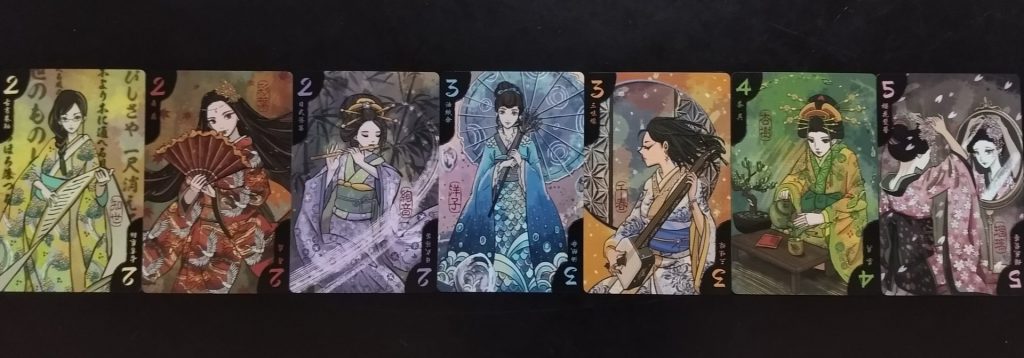
On the table between you and your opponent are 7 beautifully illustrated cards depicting the geisha whose favour you’re trying to win. In your hand are 6 similarly gorgeous cards showing the gifts with which you’re trying to charm those famed artists. The geisha second from the left collects fans, the geisha on the far right has a thing for hairpins, and so on. To win a geisha’s favour you need to place more of their gift cards on your side of the central row than your opponent by the end of the round, in a similar manner to 2018’s Air, Land & Sea.
A quick aside – if the idea of gaining the favour of geisha is making you feel uncomfortable then you should know that far from being Japanese prostitutes (who American GIs referred to as ‘gee-sha girls’ during the Allied occupation of Japan in World War II), geisha are actually highly respected traditional Japanese performance artists, skilled in music, art, dance and singing. In fact, geisha were originally men and some modern geisha have even been classified as ‘living national treasures’ by the Japanese government. Kota Nakayama, the game’s designer, is Japanese and whilst the theme is largely just set dressing, Hanamikoji treats its subject with the respect these revered cultural icons deserve.
Each turn you draw a new card from the deck and take 1 action. Each of the 4 actions can only be performed once, in any order, before the round ends. You can save a card facedown to be scored at the end of the round. You can discard two cards unseen to the game box. Or you can take one of the two actions that put the ball firmly in your opponent’s court – select 3 cards or 2 pairs of cards and present them face up for your opponent to choose their favourite and leave you with the leftovers (an I-split-you-choose mechanism later seen games such as Tussie Mussie).
At the end of the round each of you has placed 8 gifts for the geisha and it’s time to work out who bribed who the best. To win the game you need the favour of 4 individual geisha or 3 geisha whose combined points are 11 or above. If neither of you have been successful then the next round starts, only now you’re trying to keep those geisha whose favour you’ve already gained and steal the favour of those geisha your opponent won.
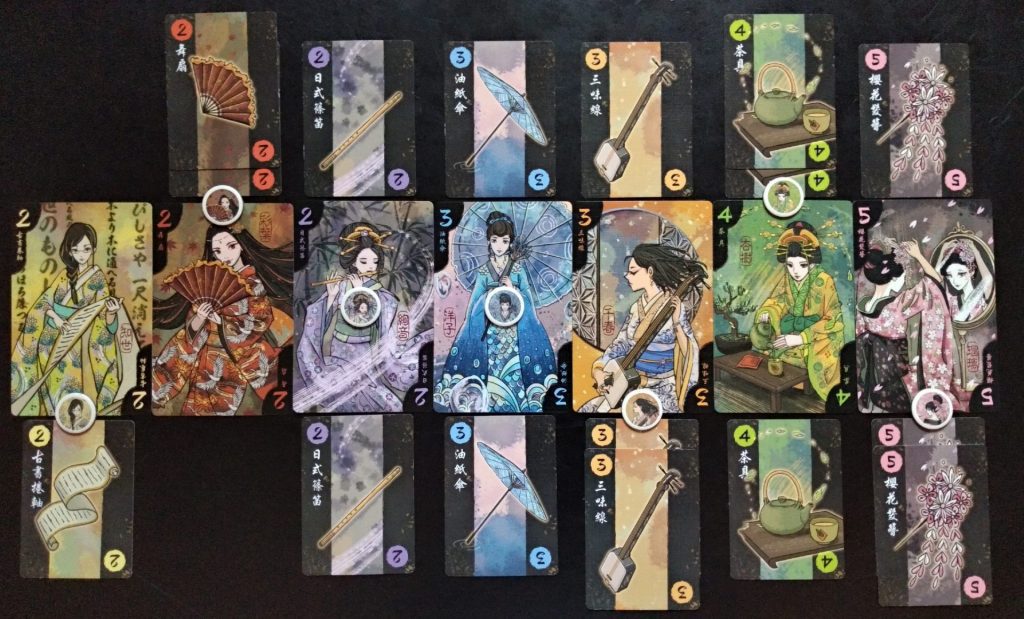
From these simple rules (and that’s all of them) a labyrinthine maze of deduction, guessing, second-guessing, third-guessing, and gut instinct branches off in all directions. You only have 4 turns in a round but the number of decisions that spring from them is huge. When should you take which action? Which geisha should you focus on and which should you bluff for? What cards should you reveal or discard or save or offer to your opponents? Every decision feels meaningful and meaty. Every choice could win you the game… or lose it.
Hanamikoji has a justified reputation as a game of agonising decisions. Every single one of the reviews cited earlier salivates over how tense and tight the game is. Another member of the Shut Up & Sit Down team, Matt Lees, calls Hanamikoji “a good game that makes him feel bad”, in that every moment playing it was “intensely stressful”. And I agree with some of that – each excruciating turn feels like choosing the least awful thing from a selection of terrible options.
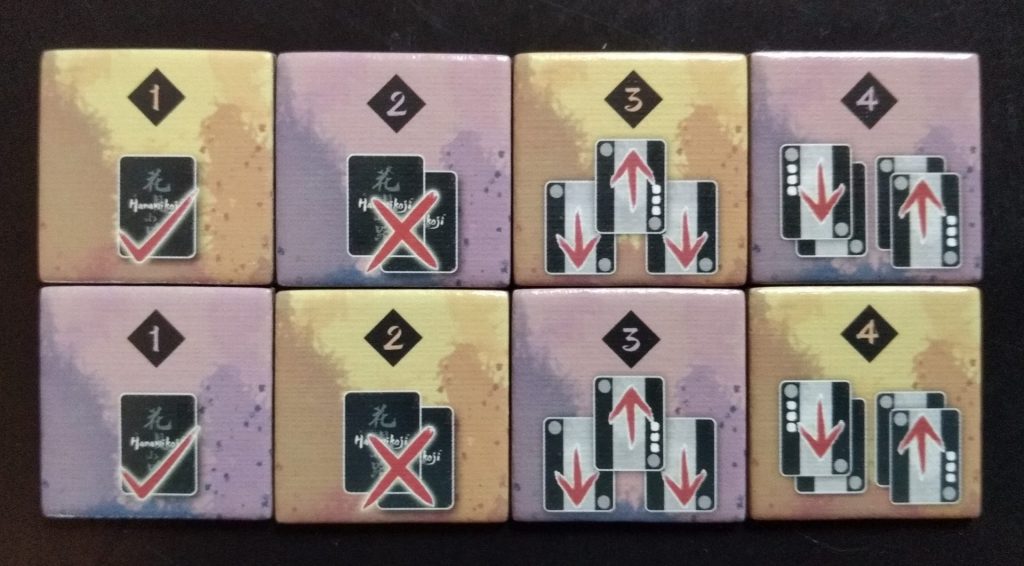
I have never played a game where the feeling of smug satisfaction from a well-played turn is so quickly replaced by the realisation of what a complete clot I’ve just been. In one game I spent literal minutes thinking through my options, eventually deciding to do what I felt could well have been the smartest, most cunning move any player of any game at any point through the entire span of human history has ever made or will ever make. Seconds later, as my fingertips lifted from the cards on the table, I realised that I’d just gifted my opponent the game.
And you know what?
That’s pretty damn funny.
Having read several reviews over the years I came to this game expecting something that was relentlessly hard, cerebrally challenging and ready to slap you round the jaw with the brutal heft of its decision fist. I didn’t think it would be all that and also feather-weight and painfully funny. I didn’t imagine I’d laugh ruefully during and after every game. And I certainly didn’t expect to enjoy the lightness that comes at the end of every round as all that tension dissipates away, the freeing release as those bottled up emotions evaporate in the sunlight.
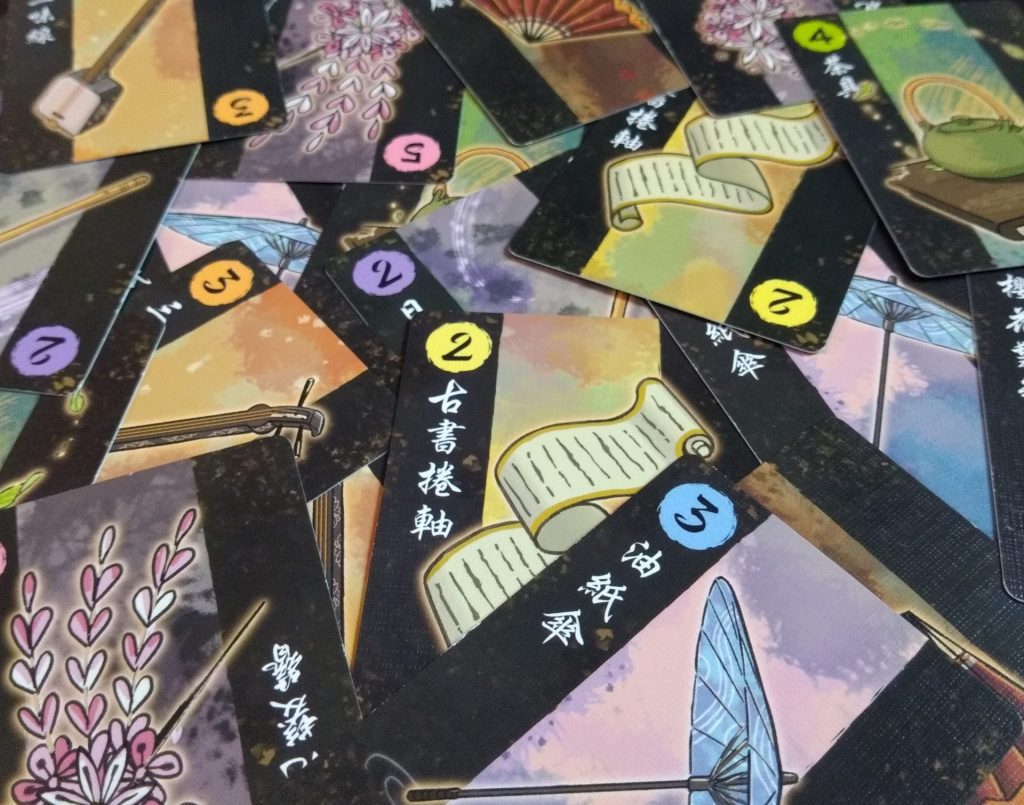
Games of Hanamikoji go on until someone wins, but it’s rare that they stretch beyond 3 rounds, and they frequently last 2. I’ve played a lot of games that ended after just a single round. If you don’t spend minutes thinking about every turn then you can comfortably finish an entire game within 10 minutes. And in that time you’ll have experienced a microcosm of all the best highs and lows that the entire tabletop hobby has to offer.
There’s skill and luck, cunning and stupidity, meaningful decisions and utter guess work. There are moments where every one of your little grey cells feels like it’s being crushed under the weight of all the terrible options available to you and there are moments when the safety valve in your head whistles furiously as all that pent up steam from your over-heating brain is released. Every game I’ve groaned at the terrible choices in front of me and every game I’ve chuckled at the ridiculousness of those same terrible choices or at my own stupidity and punctured hubris.
Is it perfect? It probably depends on what you enjoy about board games. Luck plays a role on occasion – you can keep track of cards all you like but there will always be 4 of the 21 gift cards that you don’t see and with a game of such narrow margins that can sometimes make the difference between winning and losing despite all your cleverness. But with such a short play time this rare hand of fate is hardly a deal breaker.
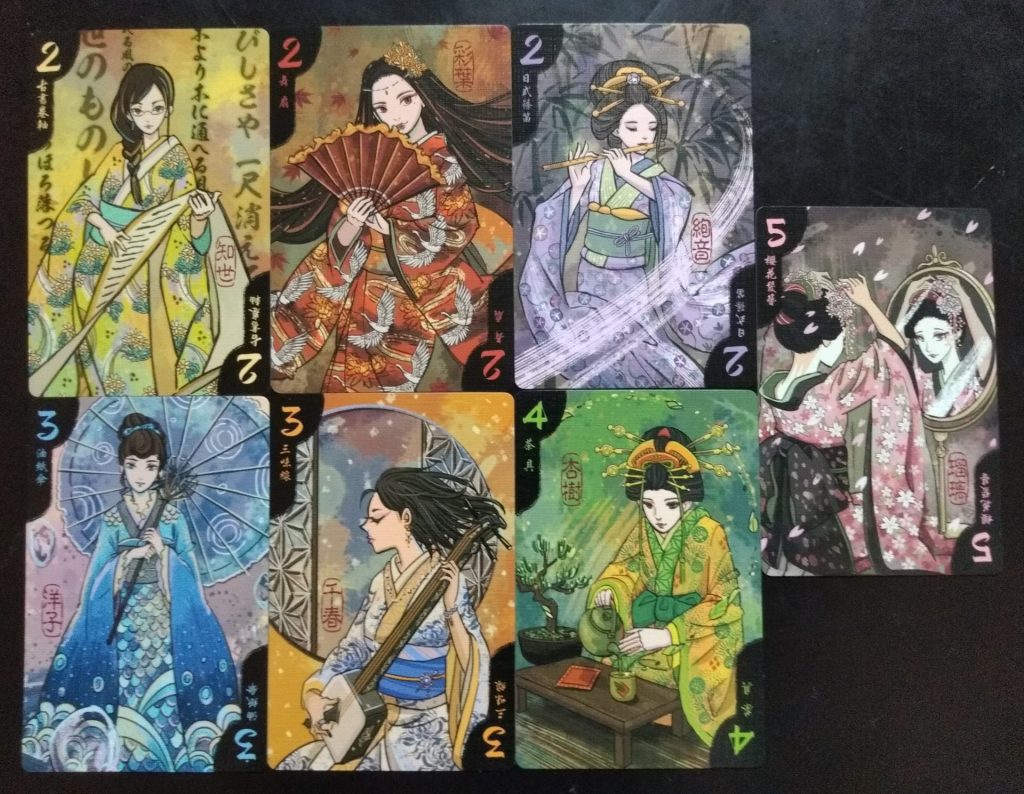
How much you choose to invest in Hanamikoji is a bigger concern – it won’t be everyone’s cup of [green] tea. Get too invested in every move and the game will make glaciers look speedy. Fail to commit enough and it all becomes a bit meaningless (I have a feeling you could play cards at random and, whilst you’d lose, your opponent wouldn’t always be able to tell). To enjoy Hanamikoji at its best you need to give yourself over to the merciless beating of its tight design and then luxuriate in the warm, bruised after-glow at the end of each round.
Perhaps this masochistic talk sounds too dark for you but Hanamikoji prompts a full spectrum of emotions, allowing you to enjoy your own cleverness and inadequacies in equal proportions. For me, Hanamikoji feels like an Argentine tango where each person is listening to different music. All that drama, tension and passion is off-set by the comedy of watching two people slightly out of step and both of them dangerously close to receiving a shoe to the groin.
Hanamikoji is pretty fantastic and fantastically pretty.
Want to find out more about the world of Hanamikoji? Check out our reviews of the 7 mini-expansions for Hanamikoji and it’s sequel Hanamikoji: Geisha’s Road.


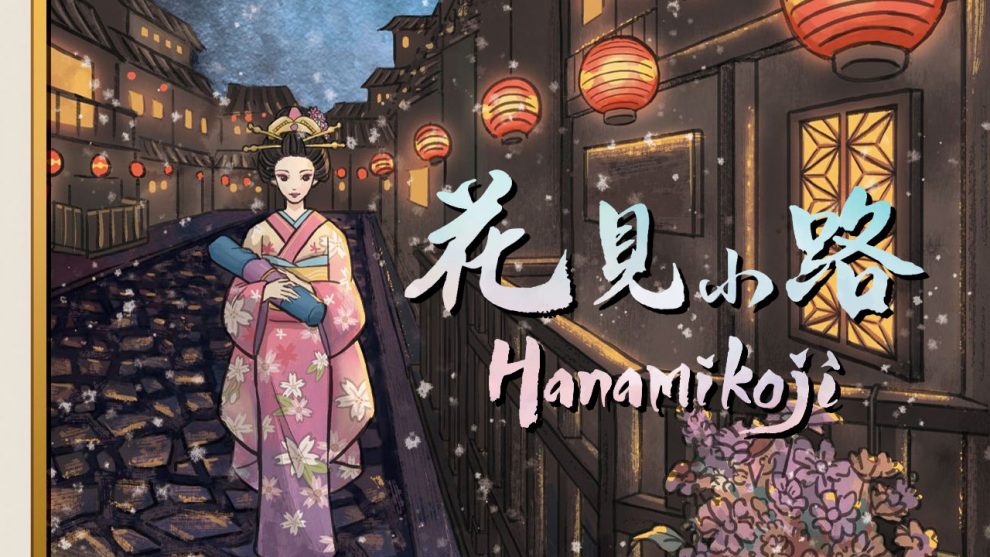


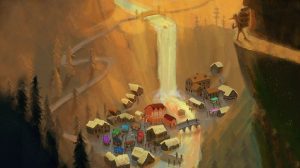





This gentleman knows how to write, and more importantly, how to describe in a visceral way how and why a game works or doesn’t. Great stuff. Iechyd da Andrew!
Diolch yn fawr iawn Joshua! Really pleased you enjoyed the review!